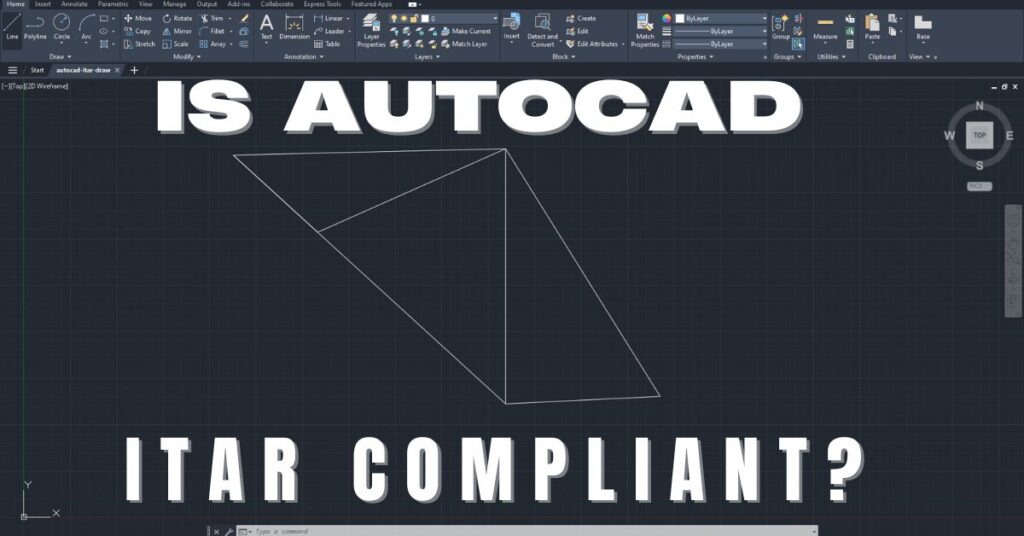ITAR for Distribution Companies Exporting
ITAR, the International Traffic in Arms Regulations, is a set of US government regulations that control the export of defense-related articles and services. For distribution companies that export, ITAR compliance is an essential aspect of their operations. In this article, we will explore the implications of ITAR for distribution companies and the steps they must take to ensure compliance. ITAR applies to a wide range of products and services related to defense, including technical data, software, defense services, and defense articles. ITAR is managed by the US Department of State, Directorate of Defense Trade Controls (DDTC), and its purpose is to regulate the export of defense-related products and services to ensure they do not fall into the hands of prohibited countries, organizations, or individuals.
For distribution companies that export defense-related products and services, ITAR compliance is mandatory. Companies that violate ITAR regulations can face significant penalties, including fines and even imprisonment for the individuals involved. Additionally, non-compliance with ITAR can harm a company’s reputation, making it more difficult to secure future business in the defense industry.
Steps to Ensure ITAR Compliance for Distribution Companies:
- Determine ITAR applicability: The first step for distribution companies is to determine whether their products and services are subject to ITAR regulations. This can be done by reviewing the US Munitions List (USML) and determining if their products and services are listed.
- Establish ITAR compliance policies and procedures: Once a company has determined that ITAR applies to their operations, they must establish policies and procedures to ensure compliance. This includes establishing a compliance program, developing and implementing training programs, and setting up a system to track and monitor exports.
- Conduct a risk assessment: Distribution companies should conduct a risk assessment to identify areas where they are vulnerable to non-compliance with ITAR. This assessment should be used to identify areas where the company can make improvements to their ITAR compliance program.
- Obtain required licenses and authorizations: ITAR for distribution companies demands that they obtain the required licenses and authorizations from the DDTC before exporting defense-related products and services. This includes submitting export licenses, technical assistance agreements, and manufacturing licenses.
- Maintain accurate record-keeping: Distribution companies must maintain accurate records of their exports and related activities, including invoices, packing lists, and shipping documents. These records must be kept for a minimum of five years.
- Regularly review and update compliance policies: ITAR regulations are subject to change, and distribution companies must regularly review and update their compliance policies to ensure they remain in compliance.
Conclusion
ITAR compliance for distribution companies that export defense-related products and services is essential. The penalties for non-compliance can be severe, and companies can also face harm to their reputation. By following the steps outlined above, distribution companies can ensure that they are in compliance with ITAR regulations and avoid the risks associated with non-compliance.
References
- International Traffic in Arms Regulations (ITAR), 22 CFR 120-130 (2021).
- US Department of State, Directorate of Defense Trade Controls. (2021). ITAR Overview.
- The Guide to the International Traffic in Arms Regulations (ITAR), by Jerrold Green, J.D. (2021).
- ITAR Compliance for Defense Contractors: An Overview, by Arina Shulga, J.D. (2021).
Share in Social Media
See More Case Studies

Securing Defense Contracts: A DFARS 252.204-7012 Compliance Case Study
Discover how Cleared Systems helped a Federal Contractor successfully achieve DFARS 252.204-7012 compliance by strengthening its cybersecurity posture, giving it a competitive edge when bidding for DoD Contracts.

What is GCC High? For ITAR & CMMC 2.0
Microsoft 365 Government Community Cloud (GCC) High is a specialized cloud solution tailored for U.S. federal, state, local, tribal, and territorial government organizations, as well as for contractors who hold or process data subject to specific security regulations. In this article, we will explore the features, benefits, and differences between Microsoft 365 GCC High and other Office 365 offerings.

Is AutoCAD ITAR Compliant? A Comprehensive Guide for Defense Manufacturers
Defense contractors and manufacturers working with sensitive military technologies face a critical question when selecting computer-aided design software: Is AutoCAD ITAR compliant? This question becomes

How to Get Help in Windows: Guide to Security and Compliance Support
In today’s digital landscape, ensuring your computer systems are secure and compliant with industry regulations is essential for both businesses and individuals. Windows, as one

Microsoft Copilot for GCC High: Enhancing Security and Compliance
In today’s fast-evolving digital landscape, organizations that handle sensitive data, particularly those in government sectors or defense contractors, face growing pressure to maintain strict security
Partner with Us for Compliance & Protection
We’re happy to answer any questions you may have and help you determine which of our services best fit your needs.
Your benefits:
- Client-oriented
- Security
- Compliance
- Peace of mind
- Efficiency
- Trust
What happens next?
Schedule an initial meeting
Arrange a discovery and assessment call
Tailor a proposal and solution
